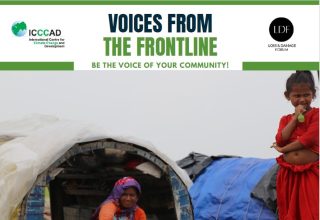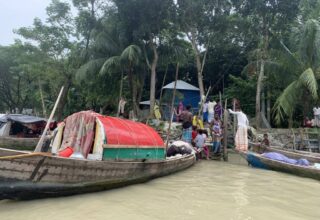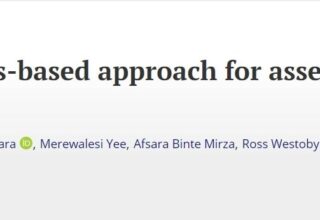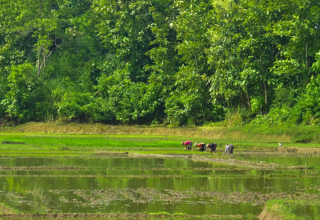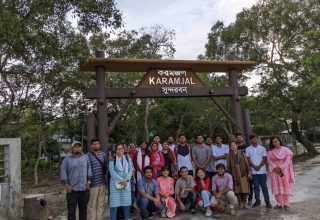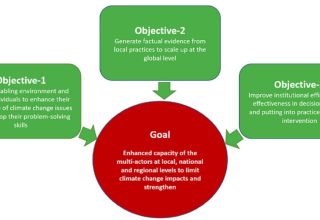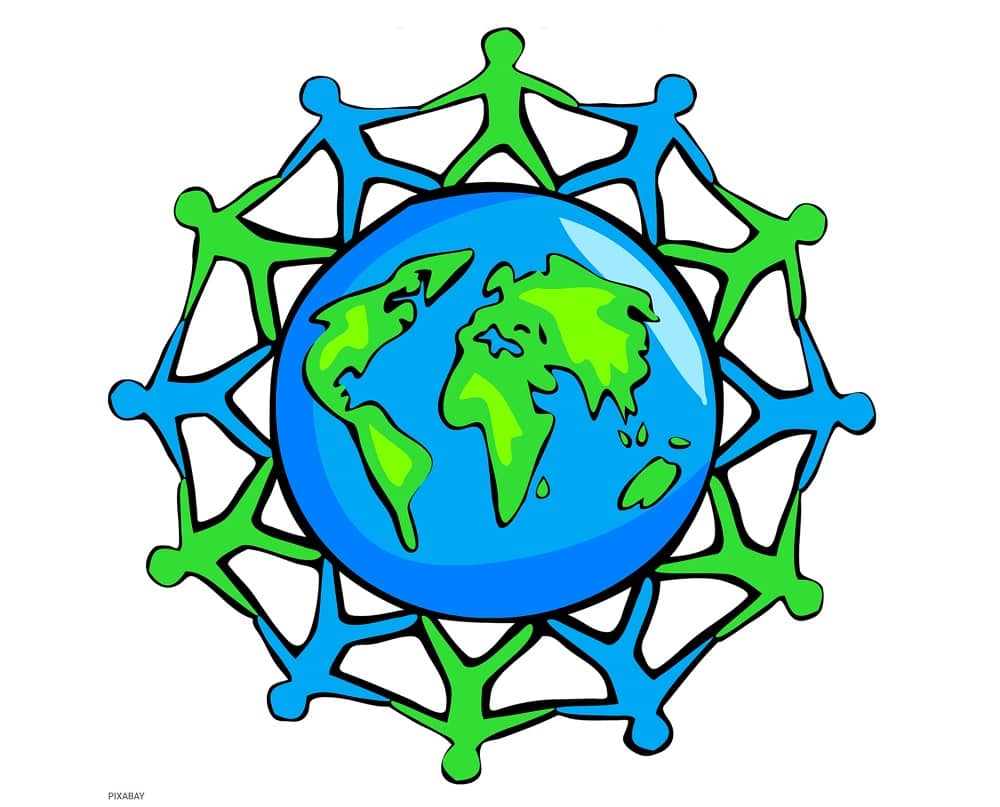
The Dutch national weather service presented its latest report on sea-level rise recently. It’s stated very clearly: If we don’t succeed in reducing greenhouse gas emissions, the sea level along the Dutch coast will rise up to 1.2 metres by the end of this century — compared to the beginning of this century. This may rise even further to 2 metres if the melting of the Antarctic accelerates. What happens when the water rises even more?
I live and work in Rotterdam, the heart of the Dutch delta. The people in this low-lying region have been dealing with high waters since generations. They have dealt with many floods, including the last one, the North Sea Flood during the night on 31 January 1953. After this natural disaster many people joined forces to repair the dikes. It’s not all gloom and doom.
Communities in this region created flourishing trading cities. There is also an ongoing effort to keep our feet dry, to keep this region safe. That’s a bit at the heart of our water professionals at consultancy firms and water boards who are working together on our flood defence network, such as the ambitious flood defence system Delta Works.
We are fortunate to have these kinds of resources and capabilities to deal with rising sea levels. But only up to a certain point. What happens to other delta regions around the world where everyday people live in fear of something similar to what happened in 1953 in the Netherlands?
The Mekong Delta in Vietnam is one such example. It’s comparable to the Netherlands in terms of population, dens
ity and size. Both low-lying areas have the same preconditions, but different solutions and cultures to cope with floods, salinisation and land subsidence.
The Dutch government, for example, has full control over the water management system. So much so, that I don’t realize that I live in a vulnerable delta. The climate is changing: the sea level is rising, intense rainfall and drought events are increasing. Thankfully, I don’t have to worry about this, because the government will fix it.
But what do I do if a dike breaks tomorrow and my house in Rotterdam gets flooded by one metre and 20 centimetres? Are Dutch people self-reliant and resilient enough when our neighbourhood floods?
Unlike my hometown Rotterdam, the river delta is ‘feelable’ in Can Tho — the capital city of the Mekong Delta in Vietnam. The tide of the sea is noticeable in the city centre; neighbourhoods are affected by heavy monsoon rains, and street levels fall by up to ten centimetres a year. This is why self-reliance and resilience are in the DNA of all communities in the Mekong Delta. It’s born out of necessity, because residents are more or less left to their own devices.
In general, solutions are not centrally controlled. There is no Delta Works yet or a dike around the city to protect residents against flooding. Therefore the people vulnerable to flooding, themselves, take the initiative to protect their homes, their belongings and merchandise by themselves.
During my first travels through the Mekong Delta in 2009, I learnt that we have to learn from Vietnamese people how to become resilient.
I strongly feel that problems on water can’t be solved without considering the indigenous solutions by locals — the farmers — who deal with the problems in their own innovative ways. They have been developing skills and know-how to deal with water challenges for generations.
Among all those interesting people I met, one person made a lasting impression on me. It was Mr Long, who lived in Chau Doc, along the Mekong river. Mr Long became a part of my morning routine, as we drank coffee and he told me stories of how Vietnamese adapt to water challenges.
That’s when I also got to know how important community participation is, in solving water problems. Mr Long introduced me to the local communities, who were helping each other to solve problems on water. Every month, for example, the families in his neighbourhood come together to solve disputes and collect money to raise the level of the streets as an adaptation measure to combat floods.
Mr. Long taught me how we can harness the shared knowledge of communities to solve complex problems related to water.
After meeting Mr. Long and his Vietnamese friends, I can say that the Mekong Delta holds a special place in my heart. They inspired me to write the book Living with the Mekong.
After completing this book in 2016, I started Nextblue, a storytelling platform about water and climate change. Here, we present the stories of exceptional resilience, hardships and courage of people living on the edge of climate change.
You may say that these stories bind local communities and give them a platform to be heard. The idea is to get their views and voices incorporated in the plans developed by professionals. Therefore, we have developed a three-step approach: Training local communities to produce water and climate stories; Co-produce articles and videos; And share their stories during live events and online campaigns for meaningful climate actions.
It won’t be an exaggeration to say that we are more an association of those communities affected by water, than a website collating stories.
So what do we achieve through our work?
We bring to the table a crucial missing link in devising strategies to combat climate change — the local context — to the policymakers.
These stories need to be heard to cope with climate change because the people affected by it are its primary stakeholders. These are stories from the heart: it reflects the emotions of people to adapt to water and climate challenges in the heart of the most vulnerable delta regions around the world.
At Nextblue, we believe the problems of climate change can be tackled only through an integrated approach. We use storytelling as an integrating tool to create a more resilient and inclusive future!
These stories let you think about what you can do to mitigate and adapt to climate change.
We’re all in the same storm, but we’re not on the same boat. If we want to fix climate change, we have to listen to the wisdom of local communities in the most vulnerable delta regions around the world.
Originally this article was published on February 13, 2022 at Dhaka Tribune.
Joep Janssen is a delta expert who became fascinated with storytelling after having lived in Vietnam for four years. His career in architecture and journalism has given him the creative tools to identify the underlying structure to successful narratives. As the founder of Nextblue, Joep amplifies stories that attract a wide audience in the water world. He can be reached at: joep@next.blue.

